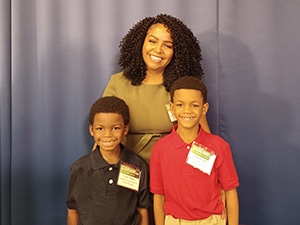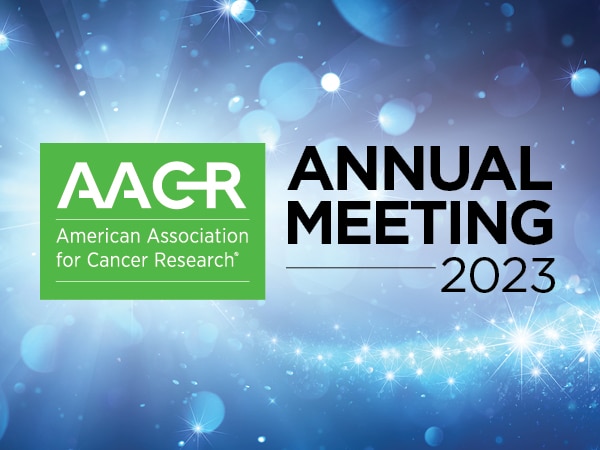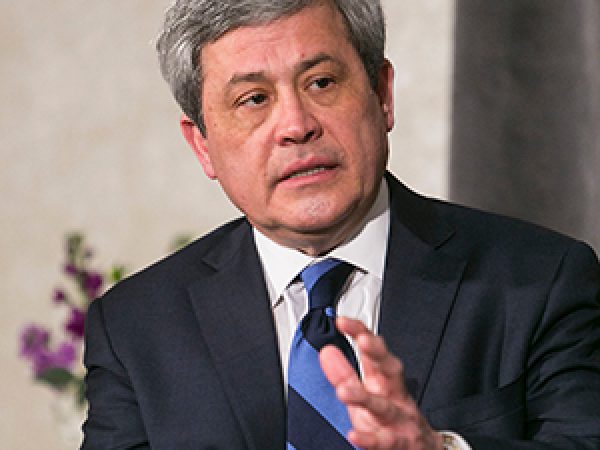AACR Cancer Progress Report 2023 Chronicles Latest Wave of Advances
Courtney Addison is eternally grateful for the CAR T-cell therapy that sent her son Cayden’s leukemia into remission.
But her heart aches for the long journey her little boy endured after receiving a diagnosis of Philadelphia chromosome-positive acute lymphoblastic leukemia when he was only 3 years old. His treatment began with chemotherapy, which failed to produce lasting results and left Cayden suffering with punishing side effects, including a life-threatening case of sepsis.
Cayden experienced a brief remission, but his cancer relapsed in February 2023. “He only had 9 months of normalcy,” his mother said at a news briefing for the AACR Cancer Progress Report 2023. Because his type of leukemia is characterized by a high risk of relapse, Cayden’s doctors recommended that he try CAR T-cell therapy, in which a patient’s T cells are extracted, engineered to target cancer cells, expanded, and infused back into the patient.

The therapy was successful, producing a complete remission with minimal side effects. Cayden turned 7 this week. He’s back in school and loves playing with his older brother, Christian, and his friends. He may still need further treatment, but for the moment, his mother joined with the American Association for Cancer Research (AACR) to celebrate his progress and call for continued robust federal funding for medical research.
“We wouldn’t be here if it wasn’t for the research,” Courtney Addison said. Going forward, she hopes researchers will be able to design cancer treatments that are less toxic to pediatric patients.
“At one point, Cayden was taking 13 medications a day,” she said. “How can we reduce that? How can we get more targeted therapies so that their cancer treatment is not damaging every part of their body?”
Cayden’s story is featured in this year’s Cancer Progress Report, which chronicles how basic, translational, and clinical cancer research and cancer-related population sciences—primarily supported by federal investments in the National Institutes of Health (NIH) and the National Cancer Institute (NCI)—remain vitally important to improving health and saving lives. Along with Cayden’s experience, the report features personal stories from several other patients who have benefited from innovative, recently approved anticancer therapeutics, highlighting the real-world impact of cancer research.
“The advances in cancer research, particularly in the last two decades, have been breathtaking. We are in an era of unparalleled opportunity to make even more breakthroughs for patients,” said AACR President Philip Greenberg, MD, FAACR. “For the cancer research community to achieve these breakthroughs, however, our representatives in Congress must continue to prioritize funding for biomedical research, from basic research to clinical trials. Through the AACR Cancer Progress Report 2023, we are sharing with the public and policy makers the progress that has been made, so they understand how crucial it is that we maintain this momentum through continued support of NIH and NCI.”
Each year, the Cancer Progress Report highlights the cancer therapeutics that the U.S. Food and Drug Administration (FDA) approved in the previous year. From August 1, 2022, to July 31, 2023, the FDA approved 14 new anticancer therapeutics and two new imaging agents, and they expanded the use of 12 previously approved anticancer therapeutics to treat additional cancer types.
Among the new approvals was the December 2022 approval of nadofaragene firadenovec-vncg (Adstiladrin), a gene therapy-based immunotherapeutic for certain patients with bladder cancer. Lesa Kirkland, 61, of Niceville, Florida, entered a clinical trial testing this treatment after her bladder cancer stopped responding to treatment with Bacillus Calmette-Guerin, an immunotherapy treatment that has been considered the standard of care for this cancer type. Kirkland received the gene therapy from 2018 to 2021, and has had no evidence of disease since then.
Kirkland honored the other cancer survivors who shared their stories in the Cancer Progress Report and shared her willingness to advocate for funding for medical research.
“We’re all thriving because of the research that has happened … so to all of you at the AACR, we thank you for the work you do,” she said.
Kirkland also took part in the Rally for Medical Research Hill Day, an annual event to support biomedical research. The AACR is the founding organizer and lead sponsor of the event. As Kirkland prepared to visit lawmakers’ offices on behalf of the AACR, she reflected on the importance of reliable funding for cancer research.
“Sufficient funding from Congress will allow the doctors and scientists and chemists to think outside the box to develop the next round of treatments without worrying about where their next round of funding is coming from,” Kirkland said.
Margaret Foti, PhD, MD (hc), chief executive of the AACR, echoed that sentiment.
“The findings in this report, along with the personal stories of the featured patients, underscore the enormous impact that robust, sustained, and predictable funding for cancer research has had on Americans’ health, and why that support must continue,” she said.



